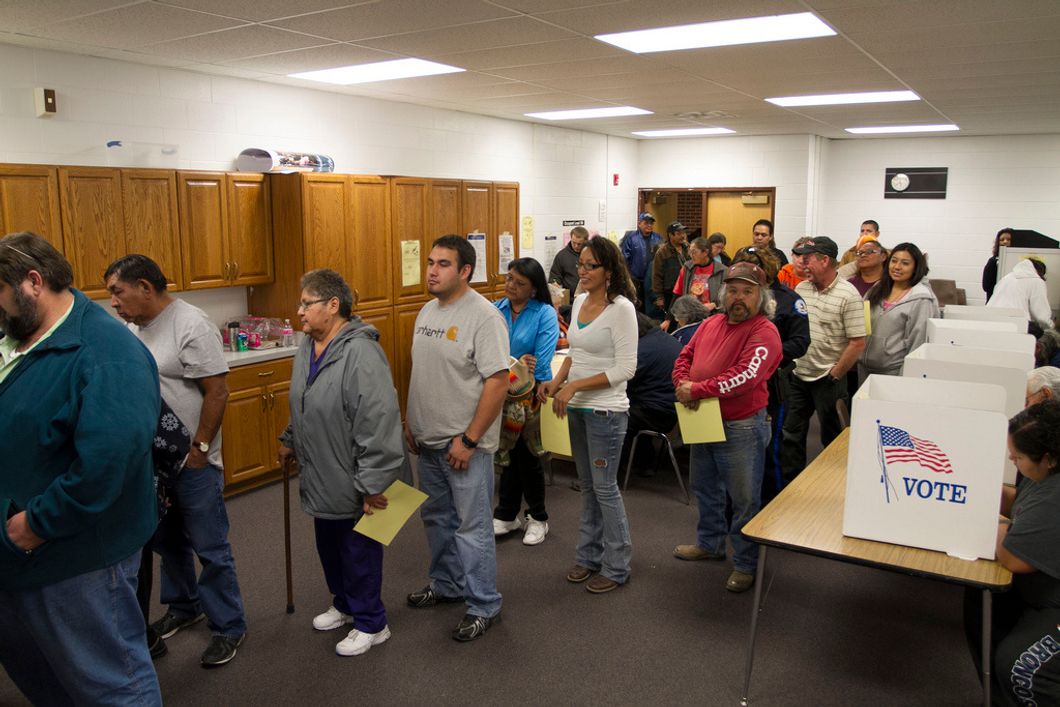The 2018 midterm elections were definitely one for the books. Millennials and Generation-Z voters took the stage by storm, making the young adult voter turnout in 2018 one hundred and eighty-eight percent that of the young voter turnout in 2014. And that's just in early voting. Early voting was five times higher in 2018 than in 2014 in both Texas and Nevada, turning close and contested Senate races in their favor. Ever since the U.S. Census Bureau started keeping track of voter-age data (1978 for midterm races and 1964 for presidential races), 18-29 year-olds have had the lowest voter turnout out of any age group. This election saw such a huge increase in young voter turnout that some predicted that the youth vote would predict the outcome for this year's election.
After the historic results of the 2018 midterm elections, including the two Muslim-American women elected to Congress and 153 LGBT candidates winning their respective races, it would seem that the 2018 elections were a testament to modern democracy in the United States. However, through all of these unforeseen victories, the issues of voter suppression and election tampering during these midterms were overlooked in favor of praising democracy and increased turnout.
Yes, young adult voters made a it a point to make their way to the polls. Was it easy for them? Not even close…
It's been proven that because six of ten millennials supported Democrats in 2016, Republicans are trying as hard as possible to suppress young voter turnout—several of the recent Republican-led voter reforms targeted the youth vote. Since the 2010 midterms, 24 states implemented some kind of voting restriction. 21 of these 24 states were passed by a Republican legislature. In 2016, students trying to vote in purple states, such as North Carolina and Wisconsin, were forced to cast hundreds of provisional ballots or were simply turned away from the polls because their out-of-state IDs did not meet the new identification laws.
Texas removed more than 400 polling locations between 2013 and 2016, forcing students and other young adults to wait for hours in order to cast their ballots. The remaining polling places were scarcely found and inconveniently located, placing young and black voters at a disadvantage to vote due to lack of car ownership.
In Maryland, election officials told students that they could not register to vote if they listed their college as their address of residence—students were told that since their on-campus housing location was not a permanent address, they were ineligible to vote in their school's district. This contributed to the widespread occurrence of misinformation targeted towards college students, dubbed as "systematic suppression." In addition to this, students were also often told that they could lose financial aid and scholarships if they voted in any county other than their home county—another fact that is 100% untrue but was spread by the Baltimore County Board of Elections.
These instances are not restricted to the states of Texas and Maryland—there has been evidence of attempted voter suppression targeting college students in the states of Arizona and New Hampshire as well. It seems obvious that the people pushing for these supposed election "reforms" (*cough* Republican lawmakers *cough*) are afraid of the effect college students and millennials can and will have on the outcomes of elections. They may try to make voting near-impossible for students, but they are not prepared for the sheer willpower that we all have to make our voices heard and make a difference in who is in charge of our country.
America is praised for our democracy (or at least, it used to be), but no proper country claiming to have a democracy can legitimately try to prevent people from making their voices, opinions, and beliefs heard. Everyone has the right to vote (someone please get these lawmakers to read through the Constitution and its Amendments—they might learn a thing or two), and the people who have the most time left to spend living here are definitely not going to be the people who let old politicians prevent them from making a difference.






 The minimum wage is not a living wage.
StableDiffusion
The minimum wage is not a living wage.
StableDiffusion
 influential nations
StableDiffusion
influential nations
StableDiffusion












